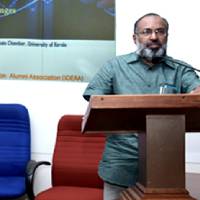
An advanced curriculum that examines economic theories, quantitative techniques, and policy analysis is the Master of Arts in Economics (MA Economics). In order to promote a thorough grasp of economic phenomena, students study subjects like macroeconomics, behavioral economics, econometrics, and microeconomics. Research projects and seminars are frequently incorporated into the curriculum to promote advanced analytical abilities and critical thinking. Specializations in fields like development economics or financial economics may be available in MA in Economics programs. Graduates can contribute to well-informed decision-making by being prepared for positions in academia, research facilities, or policy analysis. The degree also acts as a springboard for doctoral studies or practical research in a variety of fields.
Beyond conventional economic concepts, a Master of Arts in Economics (MA Economics) encompasses cutting-edge disciplines including data science, game theory, and environmental economics. A lot of the coursework incorporates practical applications, giving students experience with economic analysis and modeling. MA in Economics programs may place a strong emphasis on policy evaluation, qualifying graduates for influential positions in international organizations or governmental agencies. Specialized tracks can concentrate on technology-driven industries, healthcare economics, or global economic challenges. Students who complete the degree will have advanced computational and statistical skills that will help them better handle challenging economic situations. In a world that is changing quickly, graduates are well-positioned for professions in research, consulting, or influencing economic policy.







